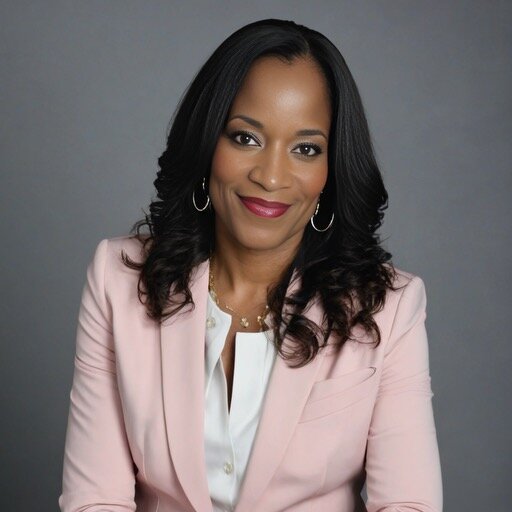OPINION: How the White Savior Complex has undermined Black communities and what must be done
For too long, the notion of white saviors has subtly shaped Black communities' views of themselves and their potential. The internalized message is that meaningful change or validation requires recognition from white figures. This mindset, referred to as the white savior complex, has held Black advancement back in tangible ways.
One of the key issues with the white savior complex is that it portrays white people as the primary agents of change. Meanwhile, people of color are portrayed as passive recipients who need saving or guidance. This undermines the agency of communities of color and implies they are not able to help themselves without intervention from white individuals.
Another problem is that it reinforces racist stereotypes and hierarchies. By positioning white people as the saviors, it feeds into the harmful idea that white societies are inherently more civilized or advanced simply due to their whiteness. Meanwhile, it suggests that people of color are somehow helpless or deficient without being "saved" by white role models.
Due to the constant pressure to prove competence to white audiences, some feel they cannot champion explicitly racial causes for fear of backlash. They feel the need to censor themselves and their communities' concerns in order to appear reasonable to white onlookers. This discourages unapologetic Black self-determination. It also creates an opening for less representative voices to define the parameters of debates around racial issues.
Studies have shown Black neighborhoods devote a disproportionate amount of consumer spending to white-owned businesses compared to businesses owned by fellow Black entrepreneurs. This stems partly from subconsciously associating whiteness with legitimacy, prestige and stability. Many Black consumers wish to avoid the discomfort of feeling they are playing favorites based on race alone. The implication of needing a "white stamp of approval" interferes with recognizing competence based on its own merits within the Black community.
Additionally, the white savior complex has negatively impacted how some Blacks support one another. Feelings of insecurity, jealousy and a "crab mentality" of pulling others down to get ahead seep in. Some successful Blacks distance themselves from their own communities to seem race-neutral. And the model minority myth pits minority groups against each other for the favor of whites. All this stems from internalizing the message that liberation comes through assimilation to whiteness rather than unapologetically uplifting Black networks and talent.
One of the root causes of the white savior complex lies in the pervasive Western imagery depicting Jesus as white. For centuries in European and American art, Jesus was portrayed as fair-skinned with European features despite historical evidence he would have appeared ethnically Middle Eastern. This subtle portrayal reinforced the idea that God and morality were white concepts. It fostered subconscious associations linking whiteness with redemption, virtue, and power over others’ salvation.
Recent archaeological finds at Tel Shikhin in Israel revealed Canaanite/Egyptian influence on Judah during David's reign, indicating racial admixing with neighboring Black Africans was already occurring long before Christ. Jesus' lineage is traced directly from David, so he bore David's mixed racial genetic ancestry.
Physical anthropologists like Nina Jablonski also note the extreme unlikelihood Jesus or other Middle Eastern Jews of the time appeared light-skinned, citing archaeological evidence. Most scholars agree Jesus, being a First Century Palestinian Jew, would have displayed dark/olive skin and curly hair common among ancient Semitic populations - characteristic of many modern Ethiopian Jews today. The works of Biblical historians like J. Akrong, J. Kameron Carter, and Katherine Tallion confirm Jesus' Black African lineage through factual analysis.
For too long, detrimental narratives have held us back from recognizing our shared humanity. By internalizing destructive myths that breed competition and division, all of our communities suffer. But a truthful reckoning is within our reach.
We must see that none of us can truly be free while others are oppressed. No group's liberation threatens another's - on the contrary, when any are kept down, we all lose ground. As Dr. King knew, justice for some requires justice for all.
It is time we lifted each other to new heights with compassion. When each life and voice is equally respected regardless of outward traits, that is the society of belonging we wish for our children. There, entrepreneurship and community enrich all neighborhoods together.
Let us leave limiting labels behind and see that we all wish to simply provide for our families and pursue happiness freely. Our shared hopes far outweigh any differences fabricated to sustain old power structures. If we make the justice and prosperity of each our concern, no one need be left behind in progress.
By embracing our stake in one another, recognizing brilliance comes in all colors, we can build the equitable world so many have sacrificed for. This is the future within our grasp if we summon the courage to see each other as fellow journeymen on this ride we all must take together. The dawn of such a world starts within - let its first light be kindling hope that we can rise to our highest destiny as one.
Sabrina Parker is a guest columnist writing about faith, diversity and equality in Jackson and beyond. Contact her at parkerintennessee@gmail.com. The Jackson Post’s opinion/editorial page is meant to help launch public discussion of local issues or allow local people to discuss national or statewide issues. Publication of a column is not an endorsement of that column by The Post, its owners or any of its advertisers or employees. To join the discussion, send a guest column or letter to the editor to brandon@jacksonpost.news. Submissions for a specific week’s print edition need to be sent by Monday night. Sending does not guarantee publication that week as that is based on space availability.






